- Home
- Aer-ki Jyr
Star Force: Empire (SF58) Page 9
Star Force: Empire (SF58) Read online
Page 9
The Kiritas tried to deal with the boredom of transit through training and games, but Fatti was just as relieved as the others when they finally arrived in Alpha Region and the Kiritak colony that housed their own maturias. The infrastructure was similar to what he’d grown up in on Kirit, but with a different feel and coloration to it, enough that he felt at ‘home’ but still in an alien environment.
There were also a handful of Humans in the otherwise all Kiritak zone, which was a new experience for Fatti who’d never seen one in person before. They were so tall and pale it surprised him, despite the pictures he’d seen all his life. Especially their heads, which were so narrow and decorated with different colors of what they called ‘hair.’ Each one he happened along over the coming days he stared at, respectfully, but didn’t interrupt. It was awe-inspiring to be next to one of them, let alone several, for he’d counted at least 14 different ones in his first two weeks in the colony, most of whom he ran across in the cafeteria or the nearby hallways.
Other than those areas it was all Kiritak all the time, with his training being taken up a notch from what he’d known back on Kirit. That was to be expected, for this was higher level maturia training and supposed to be more intense than basic had been, but it was still a challenge…though it helped that those going through it with him were also training for the exact same profession and they helped each other out whenever they could to maximize their chances of making it.
And Fatti would make it, some 17 months later when he’d completed his requirements and input his current scores into the slot selection process. He didn’t get chosen immediately, for the highest scores got preference, but after a week he received notification that he’d been accepted into a Kiritak colony all the way out in Epsilon Region, for which he left immediately.
It took three jumpships to get him out there, for there were no direct flights, but once he arrived he was put to work right away and given an exoskeleton mech to use, just like he’d trained with. It was six times as tall as he was and open to the air all around him save for a protective cage that encircled the now Kiritak. With the skills he’d developed over the last year he walked the cargo mech over to the train that had just came into the terminal and was directed to one of the cars along with six other mechs in the very long bay that allowed more than 60 cars to be unloaded simultaneously.
Fatti was last in line, following the others in and sliding the mechanical hands/pylons underneath one of the crates and lifting it up, pivoting the mech around with a shuffle of its mechanical feet, then walking the crate out and over to a conveyor onto which he sat it down before returning to the car to get another one. The conveyor had slots on it designed for the size of these crates and serviced three of the offloading stations, with Fatti’s crate dropping into one of the open slots between some others from the car to the left and all of them traveling around a few bends in the river-like flow before disappearing into a tunnel in the wall.
That was all Fatti would see of them, and his task was simple enough. Unload every train car that came through his position and get the grain that was in them to the processing factory on the other side of that wall…or wherever it was down the line. Maneuvering the mechs wasn’t easy, and even with the extensive training that the Kiritak had had, he was slower about it than the others. They didn’t give him any grief over it, for they had once been in his position, and gave him some pointers here and there and made sure to give him plenty of room to maneuver, but over the months that followed he became better at it, with his team remaining the same and them getting into a fluid sync that became second nature, allowing them to work faster and more efficiency than other, newer crews.
Their offloading rates were measured, as were all things in Star Force, so they could have numbers to compare with and Fatti quickly realized it was a matter of pride for both himself and his team as to how many crates they unloaded and how fast…but to never ever ever drop one. They were strong enough to not break, but it slowed down the process and basically said you didn’t belong here.
One of the first things his teammates told him when he arrived was to take his time and do a proper job of it. Taking their advice he did just that and never dropped one in his early days…then when he’d gotten more than a year on the job he wondered how in the hell someone could drop one, for it was so easy a task that it was almost impossible to screw up.
But that was just experience talking, and he would get even more skilled with the loading mechs as the years passed, with him transferring to another crew some 18 years later that had a higher rank and stricter timetables to work under that added a new challenge, for while the Kiritak were patient and careful, they didn’t like to be slow and designed their entire shipping process to be as fast as possible, with their loaders expected to keep up as both a matter of pride and function.
10
October 2, 2652
Epsilon Eridani System
Corneria
Hightower looked out the observation window of the shipyard at the internal slip where a partially constructed warship floated with a beehive of Human workers moving around it, pulling more pieces in and attaching them wherever they needed to go and fleshing out the synthetic skeleton. No longer were they using metals, but had moved up the tech tree to Dar’mats, which were a synthesis of various compounds with corovon-heavy bonding points that made the molecules cling to one another even more so than metals.
There were varying degrees of Dar’mats, some with more corovon in them than others, but this newest version had the lightest amount, yet in an arrangement that gave it an 82% strength rating of the heaviest to date. That made the warship skeleton somewhat weaker, but would allow 26 warships to be built out of the same amount of corovon as one of the heavies.
Hightower knew the tradeoff was worth it, for corovon mining and recycling was his highest priority in this system and across the empire. There was so little of it available in most locations because of its density, with the greatest deposits having sunk to the center of gravity wells. Already he was working with the Hycre to mine the gas giant that they occupied in this system, but they were having trouble reaching the true core. Still, the amount of corovon they were pulling from the surrounding layers was more than the terrestrial mining operations were turning out, with the Duke knowing that most future corovon hunts were going to have to go where most races couldn’t.
Hightower’s responsibilities were like those of Davis, he had to oversee that everything the mainline Star Force colonies in the system did, as well as keep an eye on the Australians and Hycre that were also in the system, but the biggest part about being a Duke was seeing the problems years in advance and working to solve them before they arose, with corovon shortages being a persistent nemesis that somehow he’d always managed to find a way to avoid. But with the continual growth of the system’s infrastructure the number of ships it was exporting there was never going to be a time when they didn’t need more.
And it wasn’t just corovon, he had to balance population against infrastructure, maintain the traffic flow of cargo and personnel, oversee the economic fluctuations in both the local and interstellar markets, plan out additions to the planetary infrastructure, orbital habitats, and just about every other bit of building within the system…all the while coordinating with the other Dukes, Marquis, and Davis to keep the overall empire in balance. They shared resources often, but it was the aim to get each system as independent as possible so to diminish the cargo transit between them, which was already reaching staggering levels.
There were nearly constant jumps in and out of the system, with far more activity within. The movement of the vessels had to be continuously monitored and guided, otherwise there would be collisions and utter chaos. The bigger Star Force grew the more challenges there were in maintaining it, for size did matter and the smaller colonies had a much easier time of running themselves.
The tradeoff was that the larger systems like Epsilon Eridani had the industrial and personn
el muscle to do things the others couldn’t, and that was both a privilege and responsibility that Hightower carried on a daily basis, for it was up to him to choose what, where, and when, with others filling in and making his plans a reality. But at the end of the day they had a framework given to them that they had to work inside of, a focus that they could rely on and tune out everything else, but Hightower didn’t have that luxury.
He knew it was even worse for Davis, who had not only Star Force but the entire ADZ to oversee, which was why he and the other Dukes tried to do as much as possible themselves to free the Director up to work almost exclusively on the big picture. The same was true for the Dukes, in that their subordinates took care of a lot of the repetitive duties to free them up to troubleshoot and plan ahead, but one didn’t fully understand what it was like to have people depending on you but without anyone for you to turn to for advice or guidance.
Hightower had many conversations about this very point with Paul when he had been Clan Saber’s Marquis, for the Archons were in the same position. The trailblazers had to lead with no one to pattern off of, for they were who everyone else took their cues from. It was total freedom to do what you wanted, but you had to come up with answers when problems presented themselves, and making that happen took a curious combination of determination, creativity, and luck.
It wasn’t easy, yet it was simple, and aside from his fellow Dukes and the trailblazers no one ever seemed to understand that, which left him in a very rare group of peers that he virtually never saw.
Epsilon Eridani was his turf, and having another Administrator of his caliber in the same location would have been wasteful, so he was left to secure and grow Star Force’s 2nd most valuable system and feed the mainline colonies and fleet in addition to what the locals needed. Epsilon Eridani had to be an exporter, and beyond that it had to be a huge exporter in order to give the rest of the empire what it needed to grow at a rate far faster than self-sufficient expansion would allow.
With the flow of cargo, ships, and pre-made structures a new colony could reach a level in a single year that, in the past, would have taken 50 to reach. That new colony in turn would reach exportation levels of its own in a relatively short amount of time, which would then help feed other colonies in a growth plume that could see entire planets reshaped in the blink of an eye compared to what he’d had to work with when he first took over control of the system.
That was the power of a large empire, and that power had to be used wisely. Many people thought that Star Force pretty much ran itself nowadays, but that was a misnomer. Mainline Star Force was full of leadership with centuries of experience and a wealth of skill, and through them the younger members were able to do things that otherwise they could not, raising the bar higher than most civilizations had ever reached.
But therein lay the snag, for without that core of experience the rest would diminish to mediocrity, not for lack of trying but simply for lack of guidance. It was easy to do something efficiently when you had a procedure to follow, given to you by a person who had had to figure it out the hard way through years of trial and error and insight, but take away that procedure and the efficient workforce suddenly became ineffective.
That was why Hightower and the other Dukes had taken Davis’s orders regarding training very seriously, for they knew that personnel rising up through the ranks could fall into the trap of simply mimicking others and learning by example. That was all fine and well until they encountered a new situation or rose to high enough rank where they had to start improvising. In order for the empire to continue to grow the leadership had to be able to think outside the box, which was why the Archons were chosen more for their intuitiveness and determination than their beginning physical skills.
Likewise Administrators had to figure out why something worked, rather than just seeing that it did and doing it again. No Duke had ever been promoted to the position without first being a Clan Marquis, and there you had to learn to do for yourself because the Clans were deliberately severed from the mainline colonies. The economies were separate, as were their supply lines and military forces. They were independent empires each, and the skills that Hightower had learned leading Clan Saber had made him ready to take on Epsilon Eridani because he’d had the opportunity to learn from doing rather than following protocol.
Likewise there were other learning experiences occurring at lower levels, with people like Hightower taking a hands off approach and letting the junior Administrators earn their keep…but he couldn’t ignore them for they’d need a poke or nudge now and again, which meant he couldn’t just sit in his office and watch the numbers roll through. He had to get out and actually see his star system first hand, which had prompted him to pick up the habit of taking random inspection tours, which at the moment brought him to this shipyard.
He always came unannounced and had a quiet look around, usually finding everything in order, but occasionally picking up on an inefficiency or a better way to do something. It was the little things that added up over time, and even while his people were damn good at what they did there was always room for improvement. They were the best within Star Force and the ADZ for that matter, but the older he got the more he learned that there was always more to learn, and with a civilization so big with so many facets, he’d stopped expecting people to be jacks of all trades…which was his job.
Specialization was a powerful tool, but when a person only knew how to do one thing it was also a weakness, for they couldn’t coordinate with others. It was the job of Administrators to get the specialists into the positions they needed, like arranging puzzle pieces, and then let them do their thing. Each puzzle piece usually had no idea what the others were doing, making the Administrators the glue that held everything together.
“I trust everything is in order?” a voice behind Hightower asked.
“That I’ve seen, yes,” the Duke said without turning around as the shipyard Administrator came up on his right side next to the large window.
“You know,” she said, “if you want to sneak onboard you shouldn’t wear your Duke’s uniform.”
“I’m not hiding, I just need to get my own eyes on what’s happening from time to time. Datapads only tell you so much,” he said, gesturing to the Cruiser-class drone being constructed in front of them inside the contained bay. It was zero g to facilitate the movement and assembly of the various components, but it was also pressurized and sealed off from space with thick doors to allow the workers to move about without wearing envirosuits.
“There’s always something to see here, given the round the clock work schedules, but I’d guess there was something more that caught your eye than the view?”
“I was curious to see the frame assembly.”
“Then you’re in the wrong slip, this one is complete.”
“Already been there,” Hightower said, glancing at her with a slight smile.
“How long have you been on my station?”
“A few hours,” he admitted.
“I’ll have to have a chat with my security chief. He only found you 40 minutes ago.”
“I hate fanfare, even in small amounts. Wastes time.”
“To answer your question, the frame assembly is taking slightly longer than previous models due to the bonding agents. We’re having to supercool them in order to make them malleable enough to take. My people are used to using heat to bond, so this cryo putty is going to take some time to master.”
“I haven’t seen any accident reports.”
“My people aren’t sloppy,” she objected with a frown.
“Didn’t imply they were, but I’ve been told the cryo bonding is dangerous.”
“Ha…most things we do around here are dangerous. It’s new, therefore we’re taking our time and learning all the little variations so we don’t have accidents. Production rates will increase slightly over the following year, I can guarantee you, but I don’t think they’re going to match the previous timetable. The process is more
time consuming, even taking the learning curve out of the equation.”
“Worth the tradeoff.”
“So am I going to get all of my slips filled, or are you still holding out on me?”
“Lots of mouths to feed,” Hightower said, ignoring the complaint he’d heard more times than he could count, “only so much ore.”
“I’ve got 18 open slips, two of which are jumpship. I hate wasting time leaving them sit.”
“As do I, but I’d rather have more slips than resources as opposed to more resources than slips.”
“We used to be full up,” she reminded him.
“We didn’t have any many shipyards back then either.”
“Just saying.”
“I may have some more coming to you in a couple of years, but don’t hold me to that.”
“A mining expansion, I hope…or is it a fabrication holdup?”
“Rare compound holdup, but there are a few more cheats in prototype like this one that could alleviate some of that burden.”
“Gravity drive without corovon?”
Hightower laughed. “Unfortunately no, we’re nowhere close to that tech level.”
“Just wishful thinking.”
“Rumor has it that some distant races have achieved it,” he floated, knowing that the shipyard Administrator didn’t have pyramid knowledge access.
“Seriously? Who?”
“Someone far beyond our reach, but I’ve been told it’s doable.”
“Wow. Never heard that.”
“Keep it to yourself, please.”
“Just get me the specs as soon as you can,” she joked.
“Deal.”
“Well, as long as you’re here, I might as well take you on a proper tour. There are better places to view your minions than here.”

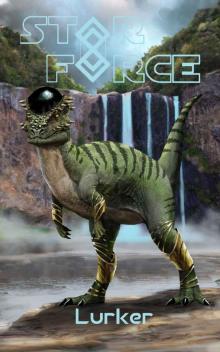 Lurker
Lurker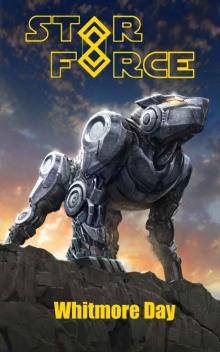 Whitmore Day
Whitmore Day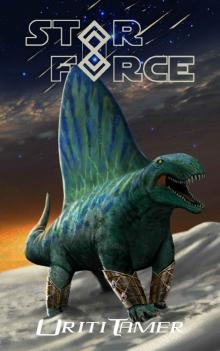 Uriti Tamer
Uriti Tamer The Powers That Be
The Powers That Be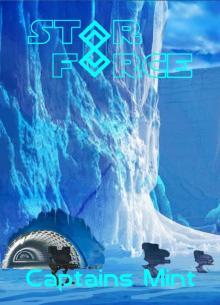 Star Force: Captains Mint (Star Force Universe Book 70)
Star Force: Captains Mint (Star Force Universe Book 70)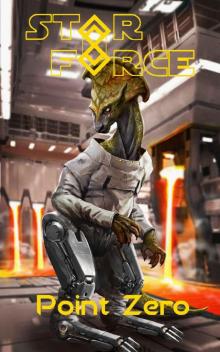 Point Zero
Point Zero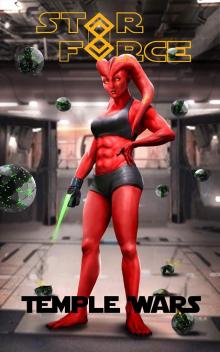 Star Force: Temple Wars
Star Force: Temple Wars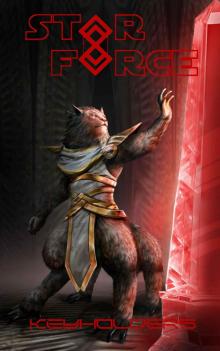 Star Force: Keyholders (Star Force Universe Book 61)
Star Force: Keyholders (Star Force Universe Book 61) Enlightenment
Enlightenment Star Force: Legacy of the Ancients (Star Force Universe Book 59)
Star Force: Legacy of the Ancients (Star Force Universe Book 59)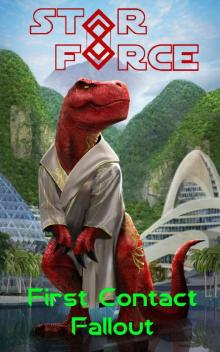 First Contact Fallout
First Contact Fallout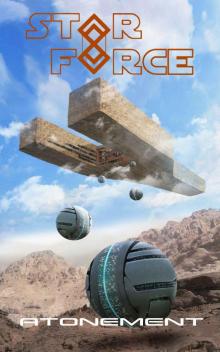 Star Force- Atonement
Star Force- Atonement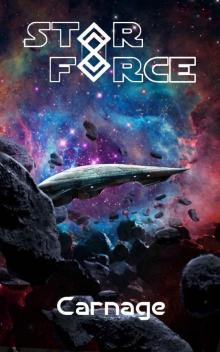 Carnage
Carnage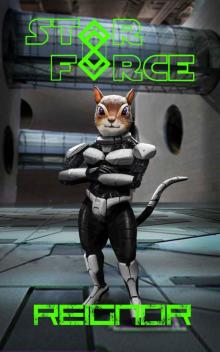 Reignor
Reignor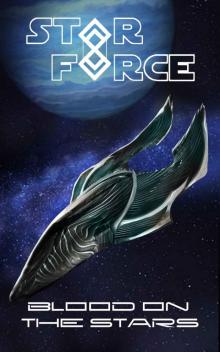 Blood on the Stars
Blood on the Stars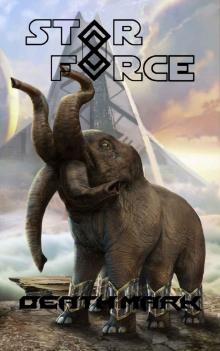 Star Force: Death Mark (Star Force Universe Book 67)
Star Force: Death Mark (Star Force Universe Book 67)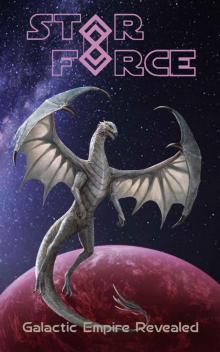 Star Force: Galactic Empire Revealed (Star Force Universe Book 63)
Star Force: Galactic Empire Revealed (Star Force Universe Book 63) Vargemma
Vargemma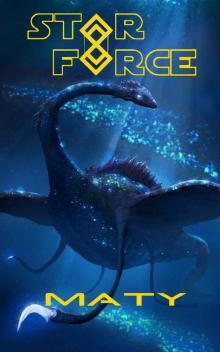 Maty
Maty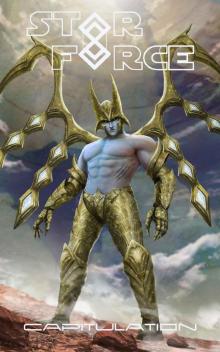 Star Force: Capitulation (Star Force Universe Book 73)
Star Force: Capitulation (Star Force Universe Book 73)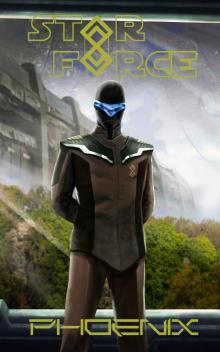 Star Force: Phoenix (Star Force Universe Book 62)
Star Force: Phoenix (Star Force Universe Book 62)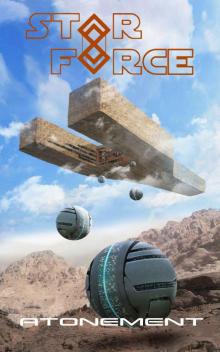 Star Force: Atonement (Star Force Universe Book 68)
Star Force: Atonement (Star Force Universe Book 68)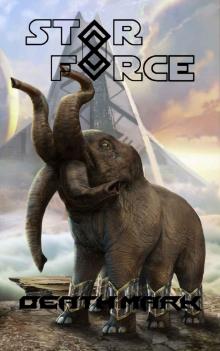 Death Mark
Death Mark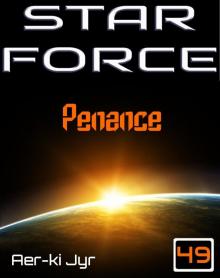 Star Force: Penance (SF49)
Star Force: Penance (SF49)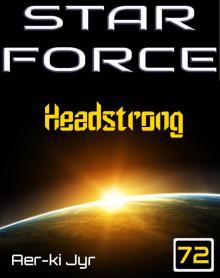 Star Force: Headstrong (SF72)
Star Force: Headstrong (SF72)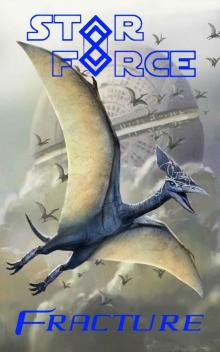 Star Force: Fracture (Star Force Universe Book 47)
Star Force: Fracture (Star Force Universe Book 47) Star Force: Eviction (SF33)
Star Force: Eviction (SF33) Star Force: Secession (SF13)
Star Force: Secession (SF13) Star Force: Termination (SF38)
Star Force: Termination (SF38)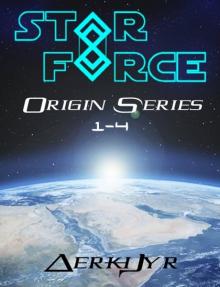 Star Force: Origin Series Box Set (1-4)
Star Force: Origin Series Box Set (1-4)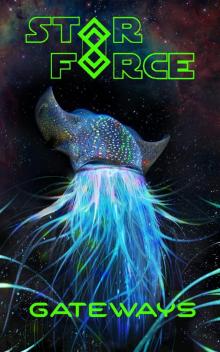 Gateways
Gateways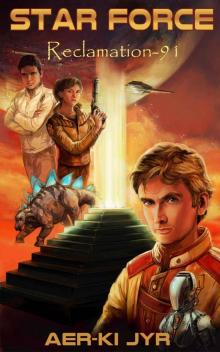 Star Force: Reclamation (SF91) (Star Force Origin Series)
Star Force: Reclamation (SF91) (Star Force Origin Series) Star Force: Excalibur (Star Force Universe Book 41)
Star Force: Excalibur (Star Force Universe Book 41)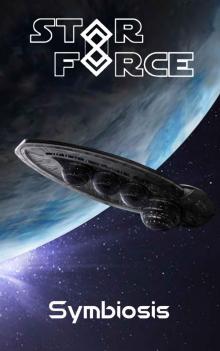 Star Force: Symbiosis (Star Force Universe Book 72)
Star Force: Symbiosis (Star Force Universe Book 72)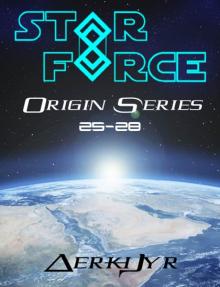 Star Force: Origin Series Box Set (25-28)
Star Force: Origin Series Box Set (25-28)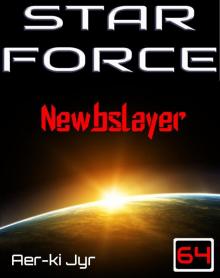 Star Force: Newbslayer (SF64)
Star Force: Newbslayer (SF64)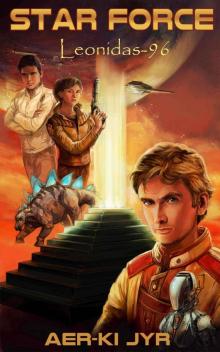 Star Force: Leonidas (SF96) (Star Force Origin Series)
Star Force: Leonidas (SF96) (Star Force Origin Series)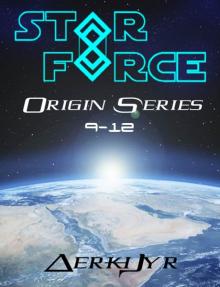 Star Force: Origin Series Box Set (9-12)
Star Force: Origin Series Box Set (9-12) Star Force: Ysalamir (Star Force Universe Book 54)
Star Force: Ysalamir (Star Force Universe Book 54)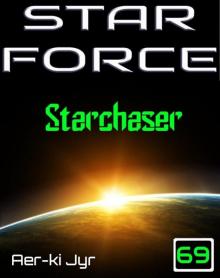 Star Force: Starchaser (SF69)
Star Force: Starchaser (SF69) Star Force: Inception (SF1)
Star Force: Inception (SF1)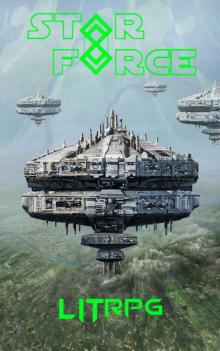 Star Force: LITrpg (Star Force Universe Book 64)
Star Force: LITrpg (Star Force Universe Book 64) Star Force: Psionics (SF29)
Star Force: Psionics (SF29) Star Force: Essence (Star Force Universe Book 51)
Star Force: Essence (Star Force Universe Book 51) Star Force: Clash of the Demigods (Star Force Universe Book 60)
Star Force: Clash of the Demigods (Star Force Universe Book 60) Star Force: Zen'zat (SF14)
Star Force: Zen'zat (SF14)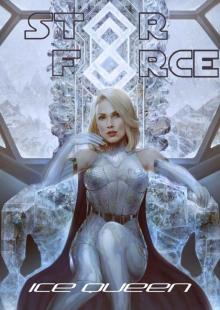 Star Force: Ice Queen
Star Force: Ice Queen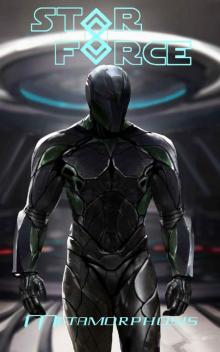 Metamorphosis
Metamorphosis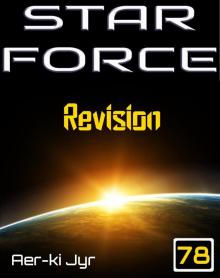 Star Force: Revision (SF78)
Star Force: Revision (SF78) Star Force: Recalibration (SF30)
Star Force: Recalibration (SF30)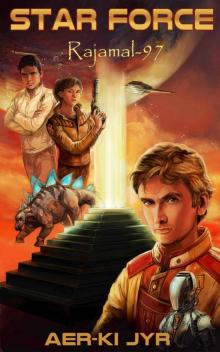 Star Force: Rajamal (SF97) (Star Force Origin Series)
Star Force: Rajamal (SF97) (Star Force Origin Series)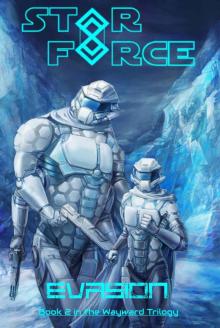 Star Force: Evasion (Wayward Trilogy Book 2)
Star Force: Evasion (Wayward Trilogy Book 2) Star Force: Mastermind (SF32)
Star Force: Mastermind (SF32) Star Force: Excursion (SF46)
Star Force: Excursion (SF46) Star Force: Deception (SF11)
Star Force: Deception (SF11)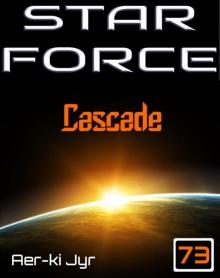 Star Force: Cascade (SF73)
Star Force: Cascade (SF73)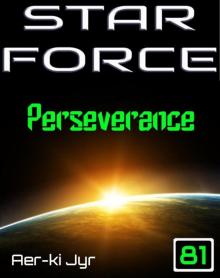 Star Force Perseverance (SF81) (Star Force Origin Series)
Star Force Perseverance (SF81) (Star Force Origin Series)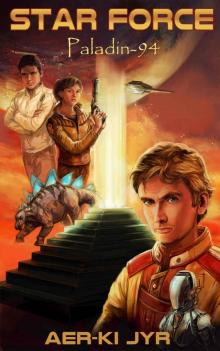 Star Force: Paladin (SF94) (Star Force Origin Series)
Star Force: Paladin (SF94) (Star Force Origin Series)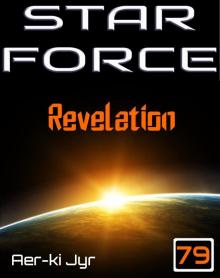 Star Force: Revelation (SF79)
Star Force: Revelation (SF79)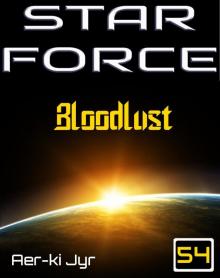 Star Force: Bloodlust (SF54)
Star Force: Bloodlust (SF54)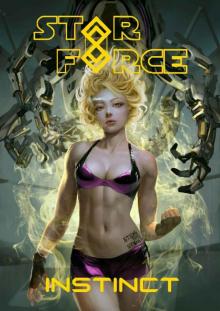 Star Force: Instinct (Star Force Universe Book 49)
Star Force: Instinct (Star Force Universe Book 49) Star Force: Intimidation (SF17)
Star Force: Intimidation (SF17)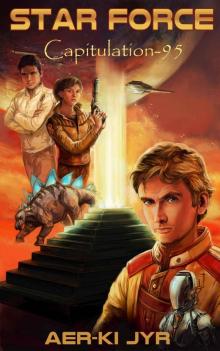 Star Force: Capitulation (SF95) (Star Force Origin Series)
Star Force: Capitulation (SF95) (Star Force Origin Series)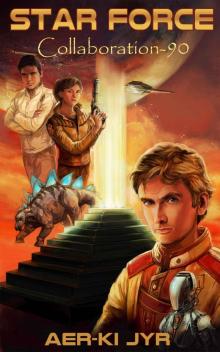 Star Force: Collaboration (SF90) (Star Force Origin Series)
Star Force: Collaboration (SF90) (Star Force Origin Series)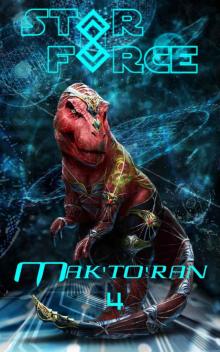 Star Force: Mak'to'ran (4)
Star Force: Mak'to'ran (4) Star Force: Unification (SF39)
Star Force: Unification (SF39)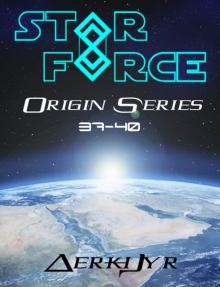 Star Force: Origin Series Box Set (37-40)
Star Force: Origin Series Box Set (37-40) Star Force: Fabrication (SF7)
Star Force: Fabrication (SF7)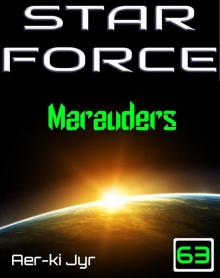 Star Force: Marauders (SF63)
Star Force: Marauders (SF63) Star Force: Ringworld (SF80)
Star Force: Ringworld (SF80)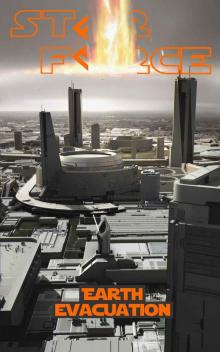 Star Force: Earth Evacuation
Star Force: Earth Evacuation Star Force: Nemesis (SF3)
Star Force: Nemesis (SF3) Star Force: Ambrosia (SF6)
Star Force: Ambrosia (SF6)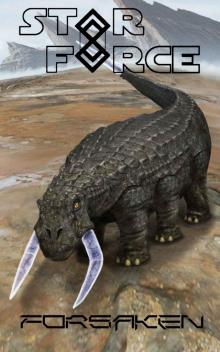 Star Force_Forsaken
Star Force_Forsaken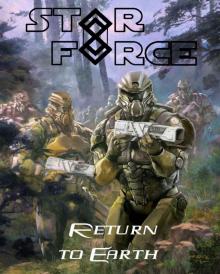 Star Force: Return to Earth
Star Force: Return to Earth Star Force: Knighthood (SF36)
Star Force: Knighthood (SF36) Star Force: Bahamut (SF86) (Star Force Origin Series)
Star Force: Bahamut (SF86) (Star Force Origin Series) Star Force: Integration (SF2)
Star Force: Integration (SF2) Star Force: Benefactor (SF19)
Star Force: Benefactor (SF19)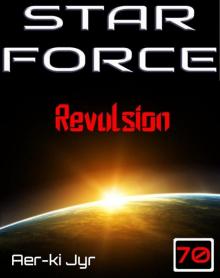 Star Force: Revulsion (SF70)
Star Force: Revulsion (SF70) Star Force: Divide (SF76) (Star Force Origin Series)
Star Force: Divide (SF76) (Star Force Origin Series)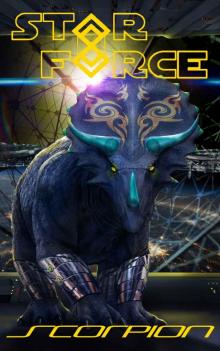 Star Force: Scorpion (Star Force Universe Book 42)
Star Force: Scorpion (Star Force Universe Book 42)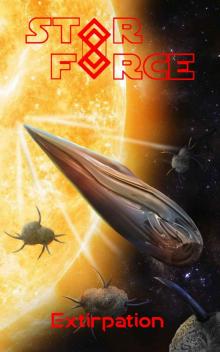 Star Force: Extirpation (Star Force Universe Book 56)
Star Force: Extirpation (Star Force Universe Book 56)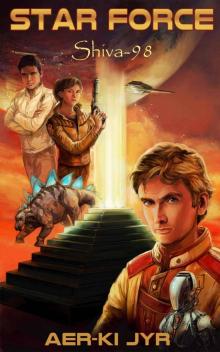 Star Force: Shiva (SF98) (Star Force Origin Series)
Star Force: Shiva (SF98) (Star Force Origin Series)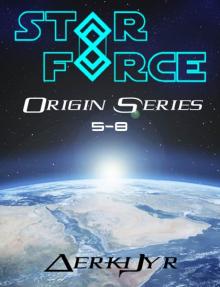 Star Force: Origin Series Box Set (5-8)
Star Force: Origin Series Box Set (5-8) Star Force: Disarmament (SF10)
Star Force: Disarmament (SF10) Star Force: Escalation (SF12)
Star Force: Escalation (SF12)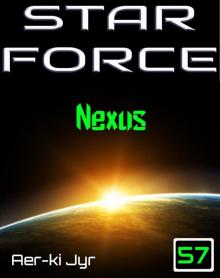 Star Force: Nexus (SF57)
Star Force: Nexus (SF57) Star Force: Gemini (SF5)
Star Force: Gemini (SF5) Star Force: Augmentation (SF22)
Star Force: Augmentation (SF22) Star Force: Mettle (SF9)
Star Force: Mettle (SF9)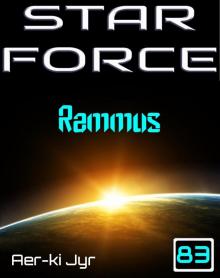 Star Force: Rammus (SF83) (Star Force Origin Series)
Star Force: Rammus (SF83) (Star Force Origin Series)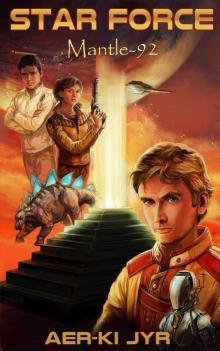 Star Force: Mantle (SF92) (Star Force Origin Series)
Star Force: Mantle (SF92) (Star Force Origin Series) Star Force: Perquisition
Star Force: Perquisition Star Force: Upgrades (SF41)
Star Force: Upgrades (SF41)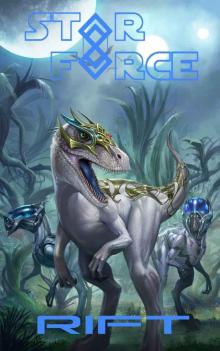 Star Force: Rift
Star Force: Rift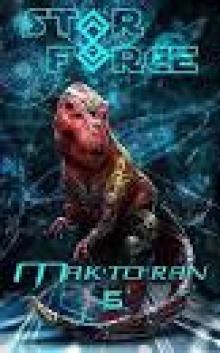 Star Force: Mak'to'ran (5)
Star Force: Mak'to'ran (5) Star Force: Consensus (SF43)
Star Force: Consensus (SF43) Star Force: Ascension (SF27)
Star Force: Ascension (SF27) Star Force: Axius (SF47)
Star Force: Axius (SF47) Star Force: Canderous (SF16)
Star Force: Canderous (SF16) Star Force: Insurrection (SF28)
Star Force: Insurrection (SF28)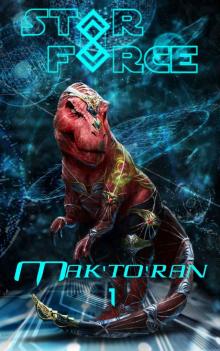 Star Force: Mak'to'ran (1)
Star Force: Mak'to'ran (1)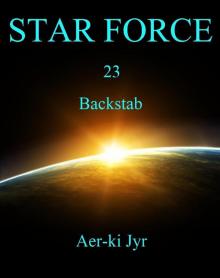 Star Force: Backstab (SF23)
Star Force: Backstab (SF23) Star Force: Hamoriti (SF62)
Star Force: Hamoriti (SF62) Star Force: Flashpoint (SF8)
Star Force: Flashpoint (SF8) Star Force: Aquatics (SF31)
Star Force: Aquatics (SF31) Star Force: Divergent (SF74)
Star Force: Divergent (SF74) Star Force: Origin (SF24)
Star Force: Origin (SF24)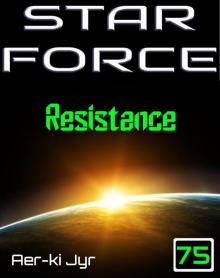 Star Force 75: Resistance
Star Force 75: Resistance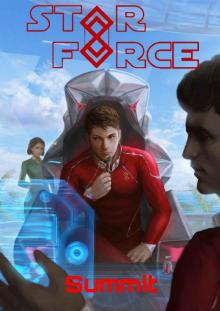 Star Force: Summit (Star Force Universe Book 44)
Star Force: Summit (Star Force Universe Book 44)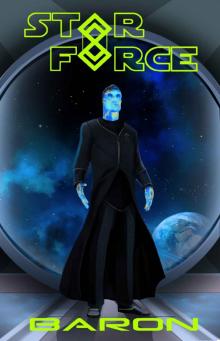 Star Force: Baron (Star Force Universe Book 43)
Star Force: Baron (Star Force Universe Book 43)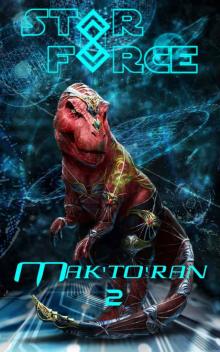 Star Force: Mak'to'ran (2)
Star Force: Mak'to'ran (2)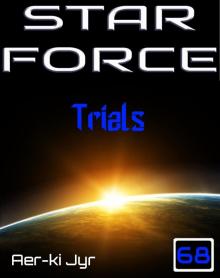 Star Force: Trials (SF68)
Star Force: Trials (SF68)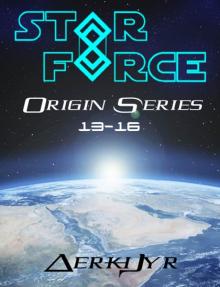 Star Force: Origin Series Box Set (13-16)
Star Force: Origin Series Box Set (13-16) Star Force: Persistent Ravage (Wayward Trilogy Book 3)
Star Force: Persistent Ravage (Wayward Trilogy Book 3)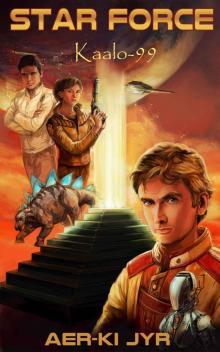 Star Force: Kaalo (SF99) (Star Force Origin Series)
Star Force: Kaalo (SF99) (Star Force Origin Series)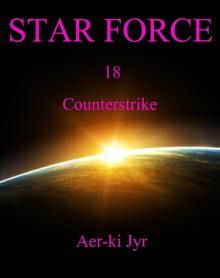 Star Force: Counterstrike (SF18)
Star Force: Counterstrike (SF18) Star Force: Foothold (SF25)
Star Force: Foothold (SF25)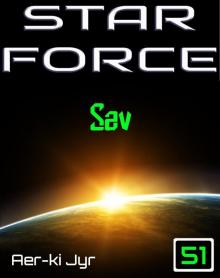 Star Force: Sav (SF51)
Star Force: Sav (SF51) Star Force: Veracious (SF48)
Star Force: Veracious (SF48) Star Force: Allegiance (SF21)
Star Force: Allegiance (SF21)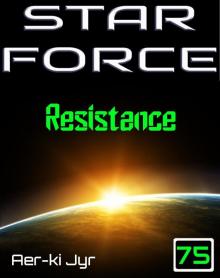 Star Force: Resistance (SF75)
Star Force: Resistance (SF75) Star Force: Deceit (SF34)
Star Force: Deceit (SF34) Star Force: Lost Destiny (Wayward Trilogy Book 1)
Star Force: Lost Destiny (Wayward Trilogy Book 1) Star Force: Melee (SF20)
Star Force: Melee (SF20)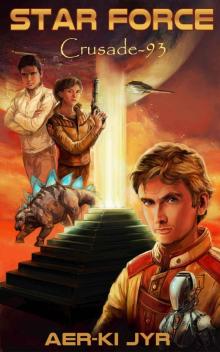 Star Force: Crusade (SF93) (Star Force Origin Series)
Star Force: Crusade (SF93) (Star Force Origin Series) Star Force: Scruples (SF37)
Star Force: Scruples (SF37) Star Force: Trailblazer (SF4)
Star Force: Trailblazer (SF4) Star Force: Commando (SF40)
Star Force: Commando (SF40)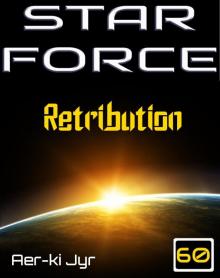 Star Force: Retribution (SF60)
Star Force: Retribution (SF60) Star Force: Relocation (SF44)
Star Force: Relocation (SF44)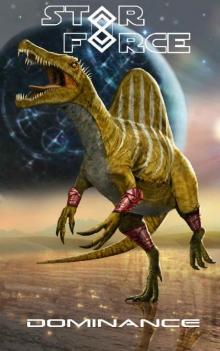 Star Force: Dominance (Star Force Universe Book 50)
Star Force: Dominance (Star Force Universe Book 50) Star Force: Death Knell (SF26)
Star Force: Death Knell (SF26) Apex
Apex Star Force: Paradigm (SF35)
Star Force: Paradigm (SF35)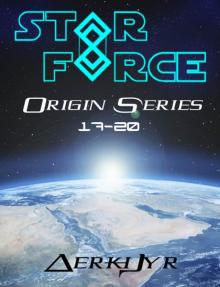 Star Force: Origin Series (17-20)
Star Force: Origin Series (17-20)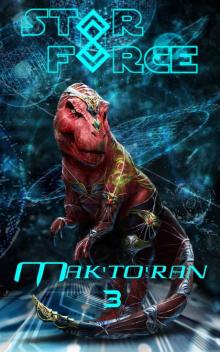 Star Force: Mak'to'ran (3)
Star Force: Mak'to'ran (3) Star Force: Colonization (SF15)
Star Force: Colonization (SF15)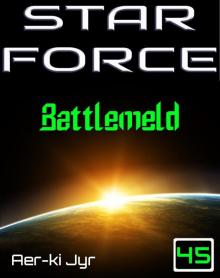 Star Force: Battlemeld (SF45)
Star Force: Battlemeld (SF45)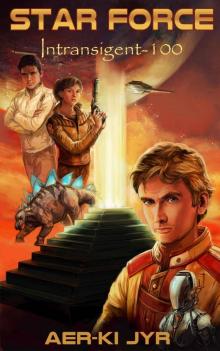 Star Force: Intransigent (SF100) (Star Force Origin Series)
Star Force: Intransigent (SF100) (Star Force Origin Series) Star Force: Shame (SF59)
Star Force: Shame (SF59) Star Force: Origin Series Box Set (33-36)
Star Force: Origin Series Box Set (33-36)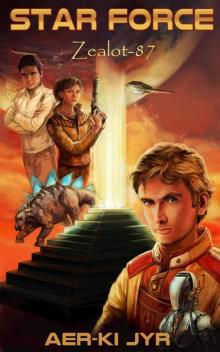 Star Force: Zealot (SF87) (Star Force Origin Series)
Star Force: Zealot (SF87) (Star Force Origin Series)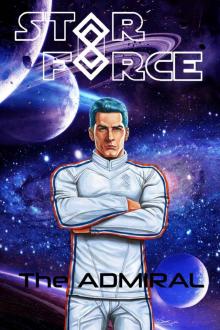 Star Force: The Admiral
Star Force: The Admiral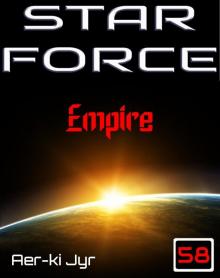 Star Force: Empire (SF58)
Star Force: Empire (SF58)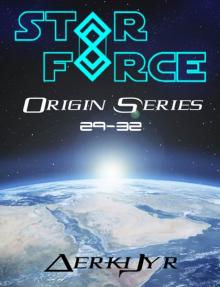 Star Force: Origin Series Box Set (29-32)
Star Force: Origin Series Box Set (29-32) Star Force 82 Hradeiti (SF82) (Star Force Origin Series)
Star Force 82 Hradeiti (SF82) (Star Force Origin Series)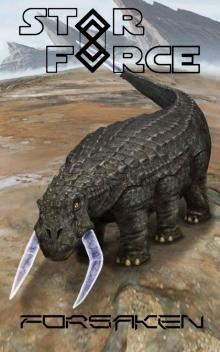 Star Force: Forsaken (Star Force Universe Book 48)
Star Force: Forsaken (Star Force Universe Book 48)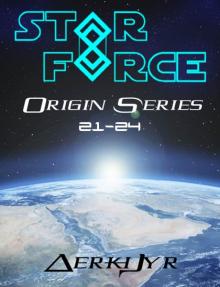 Star Force: Origin Series Box Set (21-24)
Star Force: Origin Series Box Set (21-24) Star Force: Resurrection (SF84) (Star Force Origin Series)
Star Force: Resurrection (SF84) (Star Force Origin Series)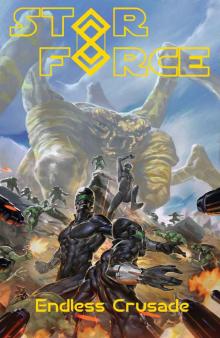 Star Force: Endless Crusade
Star Force: Endless Crusade Star Force: The Dinosaur War (Star Force Universe Book 45)
Star Force: The Dinosaur War (Star Force Universe Book 45)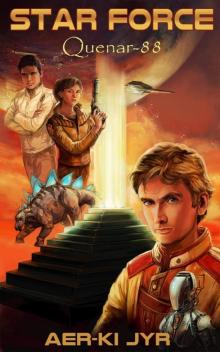 Star Force: Quenar (SF88) (Star Force Origin Series)
Star Force: Quenar (SF88) (Star Force Origin Series) Star Force: Intellect (SF85) (Star Force Origin Series)
Star Force: Intellect (SF85) (Star Force Origin Series)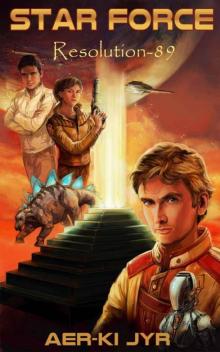 Star Force: Resolution (SF89) (Star Force Origin Series)
Star Force: Resolution (SF89) (Star Force Origin Series) Star Force: Probe (SF42)
Star Force: Probe (SF42)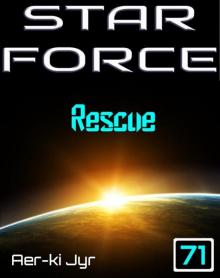 Star Force: Rescue (SF71)
Star Force: Rescue (SF71)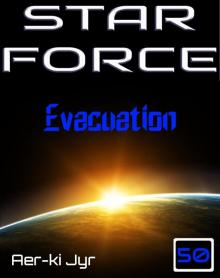 Star Force: Evacuation (SF50)
Star Force: Evacuation (SF50)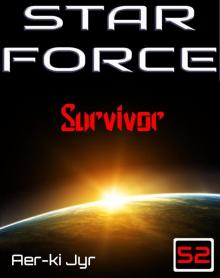 Star Force: Survivor (SF52)
Star Force: Survivor (SF52)